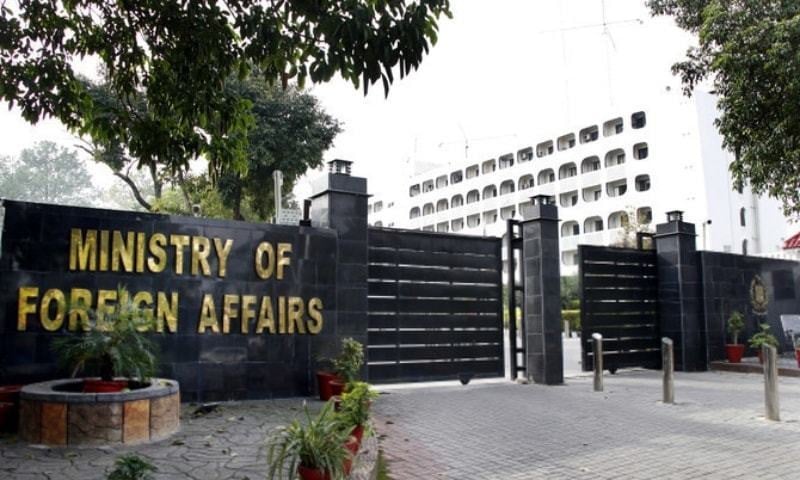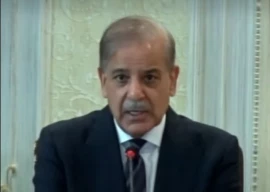
Pakistan has adopted a "wait and see" policy regarding the evolving situation in Syria, withholding official backing for the new leadership that has taken control of Damascus following the fall of the Bashar al-Assad regime.
During the Syrian civil war, Pakistan pursued a carefully balanced policy. Though outwardly maintaining neutrality, a closer examination of its policy indicates that Islamabad supported the Assad regime.
The longstanding ties between Pakistan and Syria have deep roots. Pakistani pilots once flew Syrian fighter jets during the 1967 Arab-Israeli war.
The two countries also share a history of military exchanges, with many Pakistani officers graduating from Syrian military academies and later holding high-ranking positions in Pakistan.
The historic bond explains why Pakistan refrained from siding with forces seeking to topple Assad during the Arab Spring uprising of 2011. The sudden collapse of the Assad regime has come as a shock, not just for the global community but also for Pakistan.
"We respect the territorial integrity and sovereignty of Syria and this remains our stance," commented a Foreign Office official while requesting anonymity.
The FO while supporting the territorial integrity and sovereignty of Syria, did not explicitly back the opposition led by Hayat Tahrir al-Sham (HTS).
"We are following a wait-and-see approach. The group that took over is still on the terrorist list," said another official.
HTS was once known as Nusrat Front, a group affiliated with Al-Qaeda. But its leader Muhammad Al Julani distanced himself from Al-Qaeda in 2015 and since the fall of Syria portrayed himself as moderate and aligned himself with the West.
Another reason Pakistan adopted a cautious approach stems from the fact that it doesn't want to get embroiled in a conflict where it has no direct stakes. "The neighbours of Syria are currently trying to sort out the issues," the official said.
However, officials said the Syrian situation may lead to further instability in the region and may encourage Israel to attack Iran. That scenario, according to officials, would be catastrophic for the region and Pakistan.
"We cannot afford the blockade of Strait of Harmoz for a day where we get all the oil supplies," cautioned the official.
Meanwhile, like other countries, Pakistan is also concerned and assessing if Syria remains a united country after the recent events.
Israel soon after the ouster of the Assad regime unleashed a barrage of air strikes targeting military and defence installations in Syria.
The Jewish State carried out the biggest-ever air operation in its history. It is estimated that 80 per cent of Syrian military capabilities have been destroyed.
Israel also further tightened control over the occupied Golan Heights and sent troops to the buffer zone.
Israeli action drew a strong response from Pakistan, which unequivocally condemned the attacks.
"Pakistan condemns in the strongest possible terms, Israeli aggression against Syria and its illegal seizure of the Syrian territory. This assault on the sovereignty and territorial integrity of Syria is a grave breach of international law," read a statement from the FO.
"Israel's provocative actions are a dangerous development in an already volatile region. Israel has continued to blatantly defy international law and violate UN Security Council Resolutions," it added.
It further said Pakistan expressed full support for the sovereignty and territorial integrity of Syria and rejected Israeli acquisition of territory by force. We reaffirm our support for the UN Security Council Resolution 497, which declares Israeli annexation of the Golan Heights "null and void and without international legal effect."
"We urge the international community, including the United Nations Security Council, to take immediate and decisive steps to end Israeli impunity, its repeated violations of international law, and aggression against countries of the region."
Pakistan also reiterated that peace in the Middle East cannot be achieved without complete Israeli withdrawal from Occupied Palestine and other occupied territories, including the Syrian Golan.




1734311689-0/Untitled-design-(45)1734311689-0-165x106.webp)
1734310428-0/Ludwig-(1)1734310428-0-165x106.webp)











COMMENTS
Comments are moderated and generally will be posted if they are on-topic and not abusive.
For more information, please see our Comments FAQ